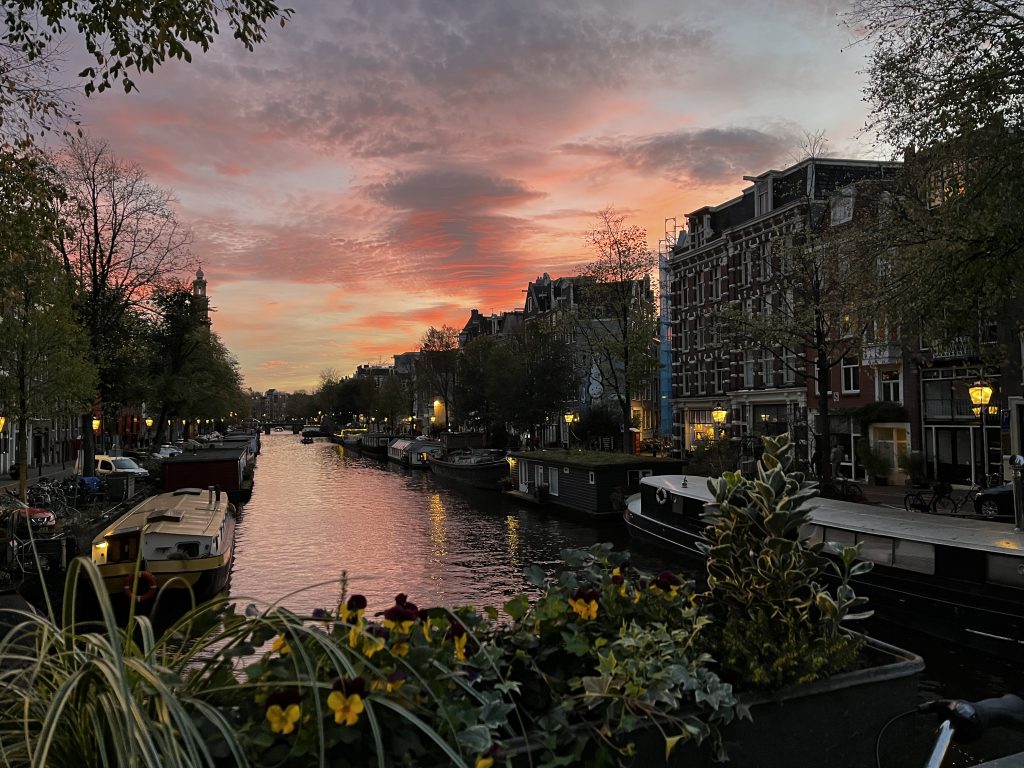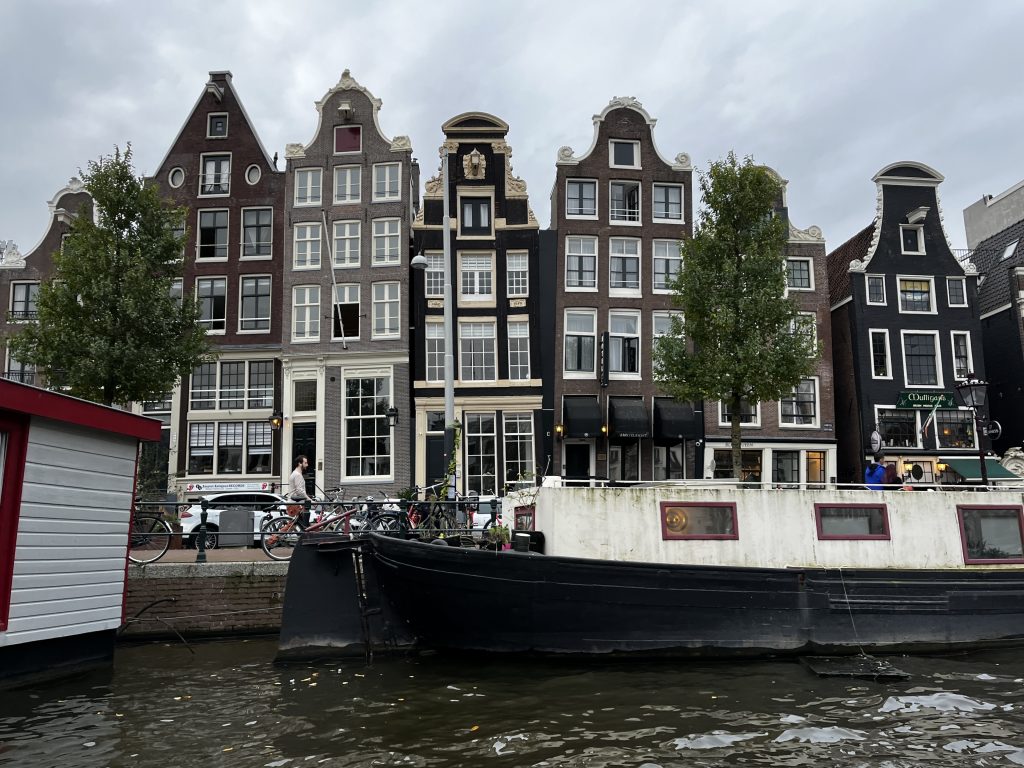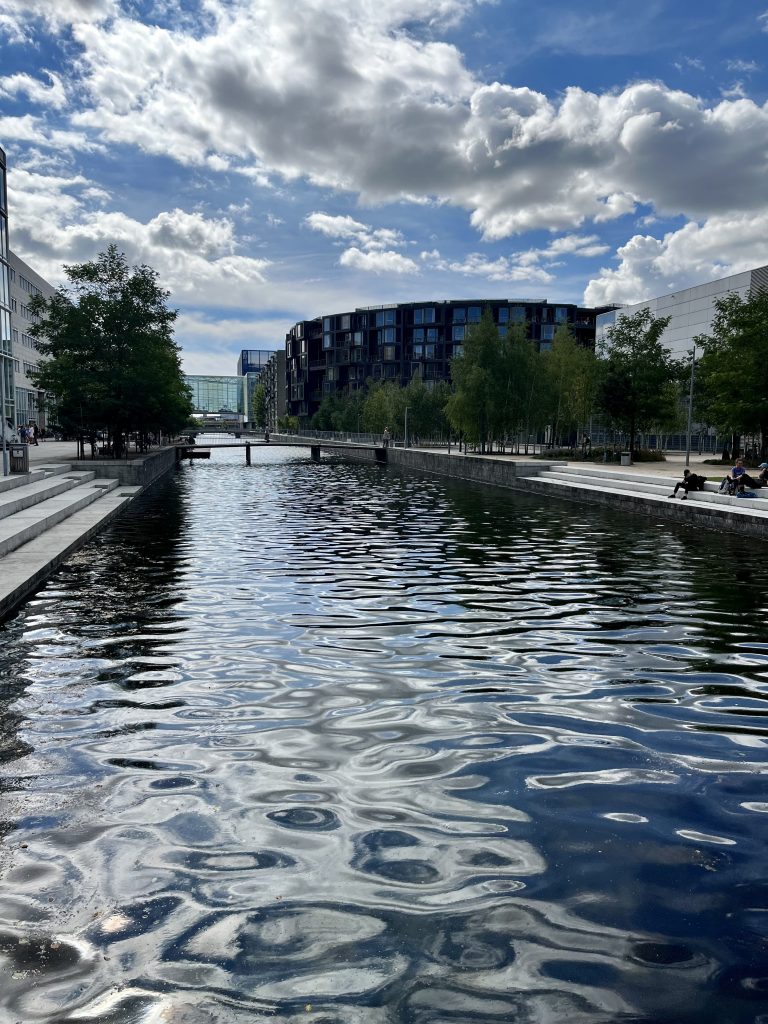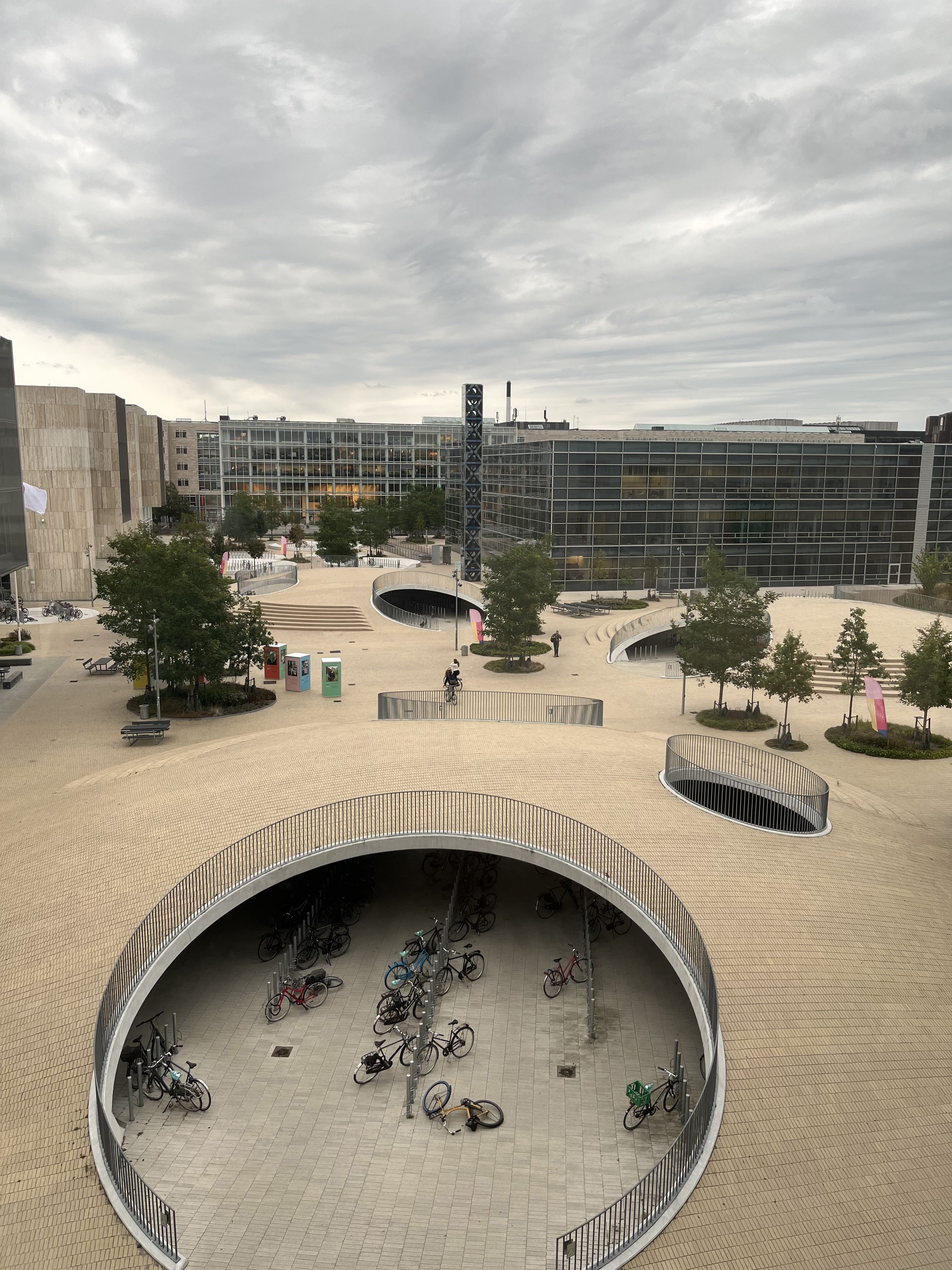The pros and cons of studying abroad
A few weeks ago, U of T Law’s first batch of outgoing exchange students since the beginning of the pandemic returned to a grey and gloomy Toronto and found themselves back wandering the corridors of Jackman Hall. As in previous years, Ultra Vires (UV) reached out to the returning exchange students to hear about the pros and cons of their host universities and their experiences in general. In response, UV received feedback from students who studied abroad at the Centre for Transnational Legal Studies (CTLS), the National University of Singapore (NUS), Trinity College Dublin (TCD), and the University of Copenhagen (KU).
Overall, students seem pleased with their decision to trade studying in the Bora Laskin Law Library for more exotic locales. Unsurprisingly, and in keeping with previous years’ feedback, the most commonly raised concern about studying abroad was the price tag. Don’t let the price alone dissuade you though—students recommend putting the cost of exchange on a line of credit or applying for a grant from the Centre for International Experience. Plus, if you’re already paying to live in Canada’s most expensive city, you might even be able to cut down on your expenses and save money by living in a different part of the world for a few months.
Without further adieu, here’s what we heard from the students.
Centre for Transnational Legal Studies
London, United Kingdom




Pros:
CTLS is a unique institution where you will study alongside students and professors from law schools around the world on topics in international law.
King’s College London, where CTLS is based, has great facilities (buildings/libraries/gym).
CTLS administration are angels.
The UK does not require a visa for Canadian exchange students. Other citizens may require a visa.
London is a wonderful city to study in—there are many things going on and it’s just a short trip away from other European destinations. Not knowing European languages is fine for traveling in Europe.
The tube gets you anywhere in the city, but it’s expensive.
Groceries are generally cheaper than in Canada.
Very affordable phone plans in the UK.
No need to open a UK bank account if you use cross-border financial services like Wise and Revolut.
Cons:
London is a crowded and expensive city. The rental prices are very high. I was lucky to find an Airbnb which had a similar price as the place I’m living in Toronto, but I had to book four months in advance and the dedicated student dorms (which is the other suitable option for renting for just a few months) are way more expensive. I heard my classmates say it was difficult to find rental properties because they only rented for four months.
Student social events are mostly pub nights, which are not an appealing option for people who don’t drink or have difficulty staying up late (but this is not really the school’s issue).
Unless U of T Law is willing to change its credit calculation formula for CTLS, be aware of a very heavy course load.
U of T students had the heaviest course load in the whole CTLS class. Students from other universities took fewer courses than U of T students. Georgetown, the founder of CTLS, asked their students to take 10-12 credits. CTLS administration was surprised when I told them I had to take at least 14 credits.
U of T students addressed their concerns to the Faculty at the beginning of the fall semester, but the Faculty insisted on a one-to-one credit conversion with CTLS.
Most of the classes were two credits, met two hours each week, and the final evaluation method was a ~4000-word paper or an eight-hour final open book exam.
I took seven courses in the fall semester to meet the credit requirement, and I felt like I could not dive as deeply into the topics addressed in courses, had less time to socialize with my fellow students, and had less time to explore London and the UK.
Tips:
Find housing as early as you can. Airbnb is still a good place to find short-term (a few months) rentals.
The King’s College gym is fantastic (affordable, not too crowded, great people, facilities, and classes). It’s located on the LG/G floors of the building where CTLS classes take place.
Don’t bother to buy an Oyster card or a travel pass for taking transit in London if you have a contactless payment bank card that works in the UK. Oyster cards are non-refundable, and the contactless price is exactly the same as using an Oyster card.
National University of Singapore
Singapore




Pros:
Excellent professors and classmates. My courses were focused on legal and political issues in Southeast Asia, which was new to me. It really gave me a different perspective.
Singapore, while expensive, is very unique and exciting to live in. Since Singapore is so multicultural, you come across lots of different festivals, foods, and ways of living.
Bureaucratic aspects of getting a visa and dealing with NUS were efficient.
Cons:
NUS does not guarantee on-campus housing! However, while living on the main campus is far more affordable, it is a true trek into the city.
Looking for off campus housing was a struggle (and expensive).
Course selection at NUS was confusing, but it ultimately got done.
Trinity College Dublin
Dublin, Ireland







Pros:
It’s not U of T.
Classes are very easy, and attendance is very optional, yet they give you 14 real law school credits!
Classes can be easily scheduled to accommodate travel—I only had classes on Mondays and Tuesdays, so I put the other five days of the week toward “cultural education.”
You only need to take three classes, each with two hours of lecture per week (i.e. six hours of class total each week).
A passing grade is 40 percent.
Semesters are shorter at TCD than at U of T.
There are lots of other law students from around Europe at TCD.
Private student accommodation is available through TCD if you apply early.
Very easy (and affordable) to travel to other parts of Europe—Dublin is home to Ryanair, after all!
Easy to travel around Ireland and Northern Ireland via train.
Dublin is a very fun city with low-key, casual vibes.
Public transport is really affordable—with a student Leap card, you can get 90 minutes of transit in the city for €1.
Irish people are really friendly.
Pubs on almost every corner.
Phone plans are super cheap compared to Canada, and you can easily pick up a pay-as-you-go SIM card from Vodafone or Three.
The weather is moderate.
Guaranteed to be your best law school experience.
Cons:
It can be difficult and expensive to find housing.
The city is a bit expensive, but that’s what your line of credit is for.
You must drink Guinness and/or whiskey (but this could also be a pro).
Much less diversity in food options than Toronto—hopefully you like fish and chips!
As a Canadian citizen, if you plan to stay for more than 90 days, you’ll need to pay €300 for an Irish Residence Permit—although, if you time your travel properly, you could technically get away with staying for less than 90 days and spend the €300 on something more fun…
Tips:
Make sure to enroll in the LLM program, not the LLB program.
University of Amsterdam
Amsterdam, Netherlands


Pros:
Beautiful city.
Lower cost of living (comparatively).
Guaranteed student accommodation (despite the housing crisis).
Centrally located in Europe.
No language barriers.
Relatively easy and clear immigration instructions.
Cons:
Subdivided semesters (we had two exam periods in our exchange semester instead of one).
A 20-minute commute to central Amsterdam from the student housing complex.
The metro closes for the night at 12:30am.
Not a lot of opportunities to meet Dutch students since there are mandatory classes for exchange students (but you can meet a lot of other exchange students).
University of Copenhagen
Copenhagen, Denmark


Pros:
KU has a beautiful campus.
Classes are very laid back—I only needed to take 30 ECTS credits, which worked out to two courses for the semester.
Final exams consisted of two longer papers.
Copenhagen is a very cool city—highlights are the food/bakeries and flea markets.
Housing was easy to book through the housing foundation (although not cheap).
City transportation is easy as the city is very bikeable and has a good subway system.
Everyone spoke excellent English.
Except for flea markets, everyone accepts card payments.
Cons:
The only con, in my view, is the cost—get ready to spend $9 CAD on coffee and $30 CAD on ramen—however, the school has an excellent, well-priced cafeteria to offset these costs.
If you are hoping to travel, flights are more expensive out of Copenhagen than other European cities.
I had to get a visa, which cost around $800 CAD.
And finally, one general comment we received about going on exchange: “Not enough students take advantage of the exchange program, so make sure to go!” Hopefully that’s enough to convince you!
Editor’s Note: Submissions have been edited for brevity and clarity.





